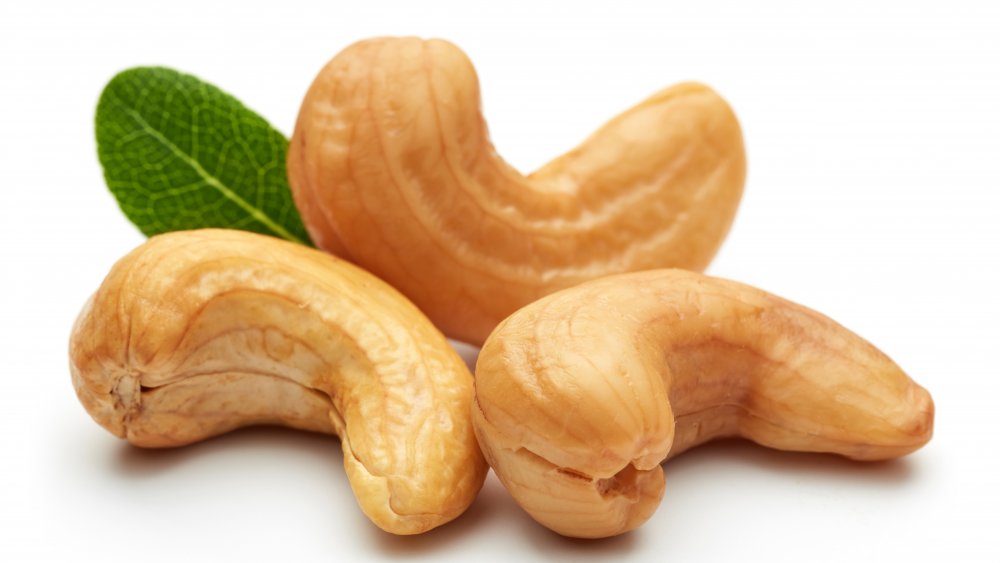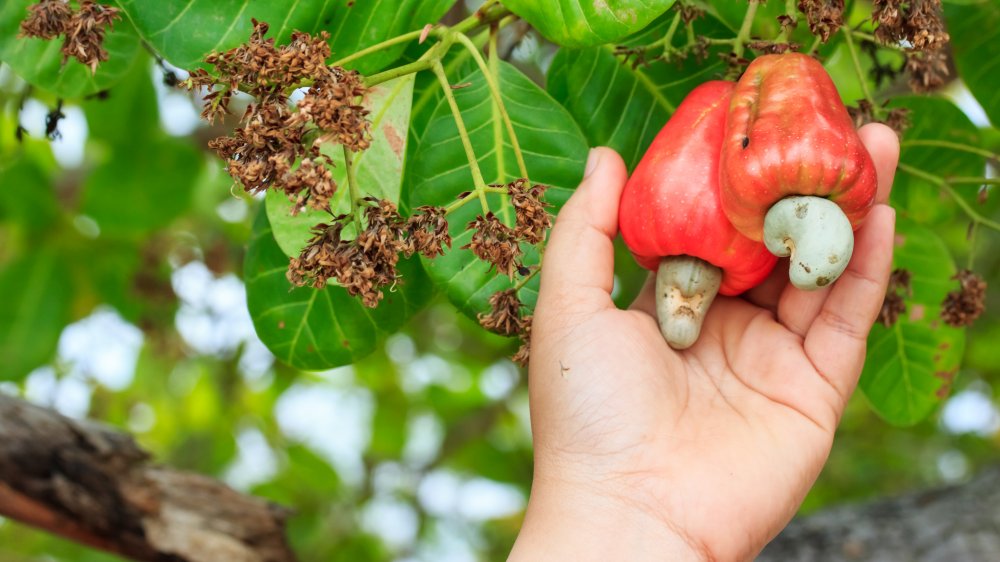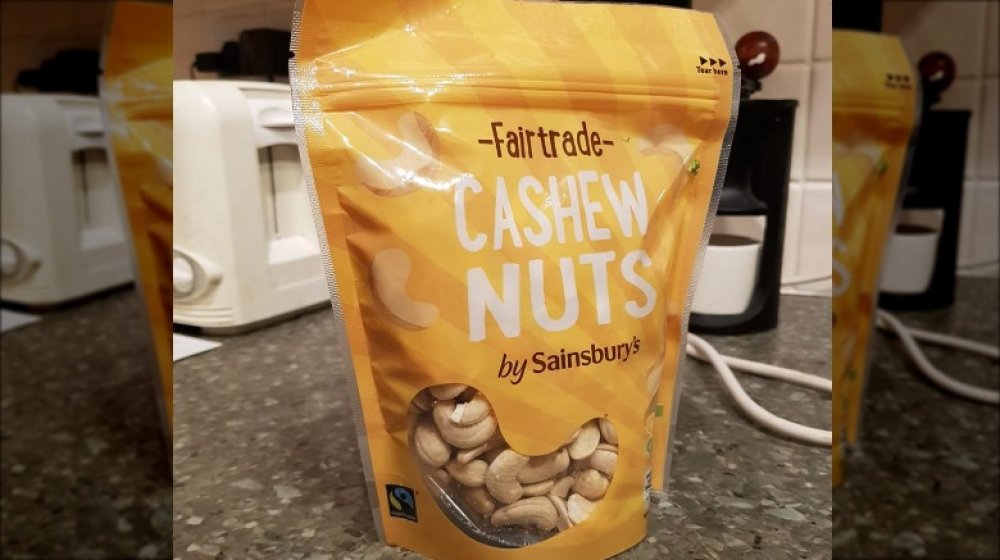Read This Before You Eat Your Next Cashew
Are you all ready for National Cashew Day? Okay, it isn't until November 23, according to the National Day Calendar, but you can never be too prepared, right? Cashews are nutritious, delicious, and everybody (even Oprah) loves them, despite the fact that cashews are not even nuts. Cashew "nuts" are actually a weird little growth that's attached to the fruit of the cashew tree. And they're actually quite dangerous in their natural state. as they're surrounded by a poisonous hull. In order to render them edible once they're harvested, cashews have to undergo an extensive drying and cooking process to eliminate all of the toxins.
While this process naturally bumps up the price, making cashews one of the more expensive types of nuts you can buy, this isn't the worst thing about them. A 2011 Human Rights Watch report revealed that the conditions under which many cashews were produced were inhumane to the extent where they referred to them as "blood cashews." While a 2019 Quartz article said there'd been some improvements in the cashew industry over the past decade, there are still a number of ethical concerns regarding the safety of those who work to bring us this yummy, yet problematic, treat.
Cashew harvesting is a hazardous occupation
The 2011 Human Rights Watch report exposed the fact that cashews produced in Vietnam, a major importer, were essentially the product of forced labor from detainees in so-called drug treatment centers. The "patients" in these centers spoke of being beaten, given electrical shocks, locked in "punishment rooms," charged for their room and board, and made to shell at least 5 kilograms of cashews per day (that's 4,800 nuts). Not only was this work beyond monotonous, but it was also extremely uncomfortable and irritating, not only to the skin, but also to the lungs. Gloves and masks were seldom available, and when they were, the workers would be made to purchase them with their own funds.
Quartz says that Vietnam is no longer using drug treatment centers as cashew processing plants and also reports that that country has been able to mechanize the cashew processing process to a certain extent, which cuts down on the number of humans suffering from dermatological and respiratory damage. Still, mechanization is very expensive, so most cashew growers still rely primarily on manual labor, and cashew workers in both Vietnam and India (another major cashew producer) have also been subject to various rights violations including sexual abuse and child labor.
The cashew industry remains questionable
Several countries in Africa have now overtaken Asian countries when it comes to cashew production, at least when it comes to harvesting the raw kernels. Quartz notes, optimistically, that many of these countries are making investments in domestic processing facilities — and this may lead to greater accountability in production conditions. They still face problems of their own, however, not least of which is the cashew farmers' ability to earn a living wage in the face of constant price fluctuations. One particularly regrettable incident occurred in Tanzania a few years back when cashew farmers protesting low prices had their crops forcibly taken from them by the military to be purchased for the inadequate amount set by the government.
Sadly, only about 3 percent of the world's cashews can be said to be fair trade, but if you want to be an ethical eater, it's worth seeking these out. If you cannot find such cashews, then perhaps it's best to celebrate National Cashew Day by avoiding all cashew products until such a time as we can be sure that they're not causing untold human misery at the opposite end of the supply chain.


